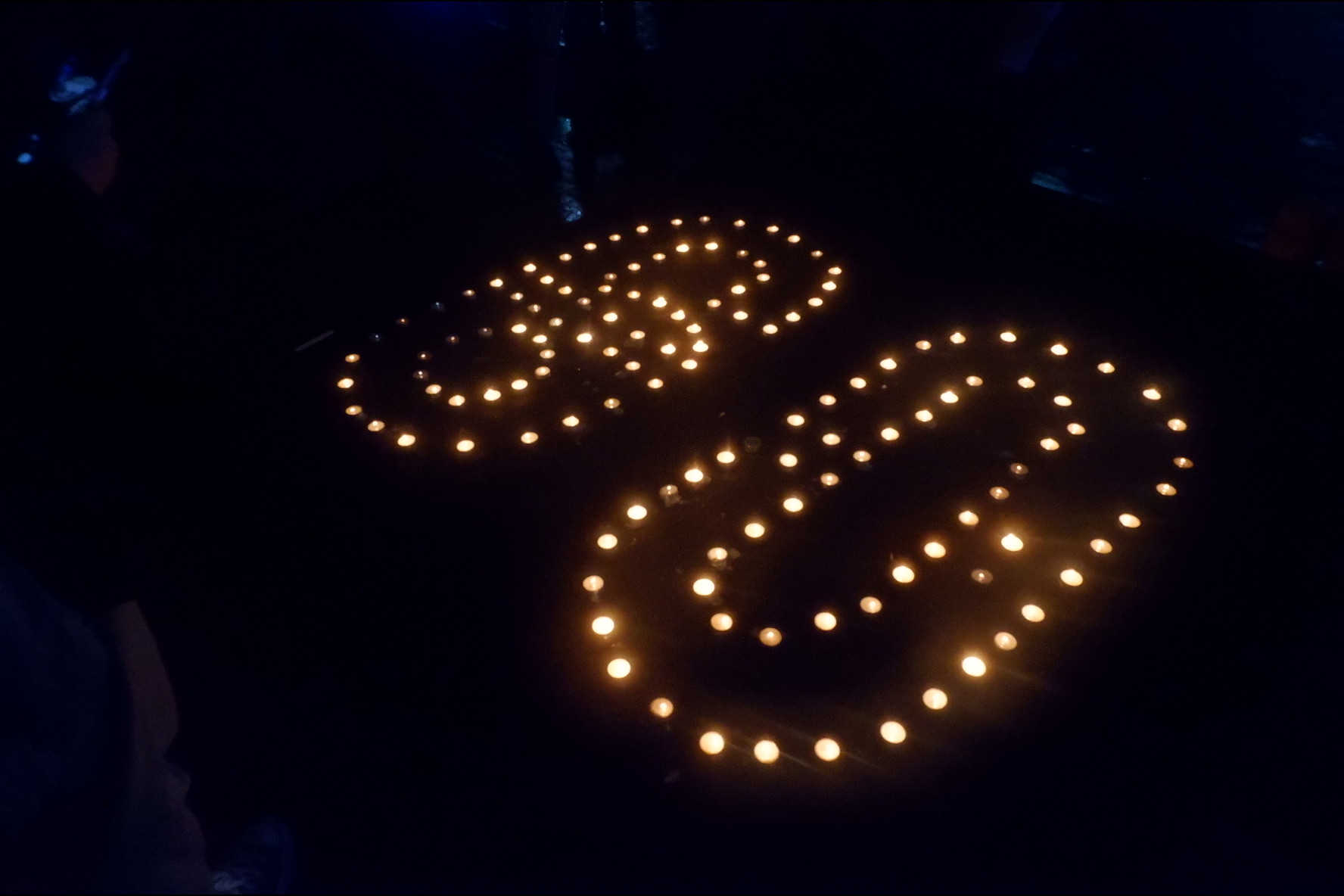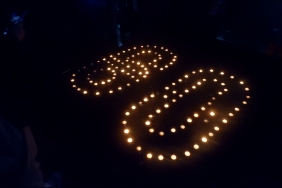GBK MAIN STADIUM BECOMES EARTH HOUR 2018 ICON #CONNECT2EARTH
"Gelora Bung Karno, Jakarta, March 15, 2018 - This year the world will witness the participation of a new Indonesian icon in Earth Hour. WWF-Indonesia, in collaboration with the Indonesian Asian Games Organizing Committee (INASGOC) and the Bung Karno Complex Management Center (PPK GBK), will turn off the lights and decorations at the Gelora Bung Karno Main Stadium for one hour (20:30 - 21:30 WIB) on Saturday, March 24, 2018, as a symbol of concern for environmental issues and climate change.
Earth Hour is a global campaign initiated by WWF since 2007 in Sydney, Australia. In 2009, Earth Hour started in Indonesia, and within ten years, at least 67 cities participated. The Earth Hour moment then turned into a grassroots movement, embracing more than 1500 Volunteers who are members of the Earth Hour Community in 31 cities in Indonesia. Earth Hour globally is no longer a one-hour action to turn off the lights, but has succeeded in advocating for policies related to climate change mitigation in various countries in the world.
"From Moment to Movement. After ten years, Earth Hour has become a global and national movement, we can see thousands of actions taken by the public to help the planet," said Rizal Malik, CEO of WWF-Indonesia. Earth Hour 2018 #connect2earth embraces more and more partners and participation, both from the community, organizations, the private sector, to national and city governments.
"This year, we are proud to note the participation of Gelora Bung Karno in the symbolic action of turning off the lights for one hour. As a new icon of national pride, GBK symbolizes the progress of the mindset and attitude of the Indonesian people and government towards environmental issues and climate change that we are experiencing today," continued Rizal.
Gelora Bung Karno Complex not only participates in Earth Hour, but also has a mission to become the lungs of the city for Jakarta, as a water catchment area and green open space, as well as a tourist attraction and social communication infrastructure.
Winarto, President Director of PPK GBK said, "2018 is the year of the revival of national sports, where we are again hosting the Asian Games after the 4th Asian Games in 1962. GBK has improved a lot to provide the latest sports facilities, which also support the concept of sustainability and environmentally friendly."
The 276-hectare GBK complex is one of three areas that must be kept green in the capital city of Jakarta, apart from the Monas and Kemayoran areas. PPK GBK then changed the function of several facilities into green areas and even became an urban forest. Utilizing the latest technology such as solar panels for lighting during the day and replacing all lights with LEDs for energy efficiency.
"After this we will calculate the carbon emissions of the entire GBK area, we will also calculate the contribution of this area in carbon absorption in Jakarta," continued Winarto.
The 2018 Asian Games, which will soon use sports facilities at the GBK Complex from August 18 to September 2, 2018, also conveyed its commitment to carrying out an environmentally friendly sports party.
Erick Thohir, President of INASGOC said, "The Asian Games 2018 Jakarta & Palembang have been declared environmentally friendly. Look at how the changes in the Gelora Bung Karno area, now all existing fences have been removed so that visitors, media, and officials can walk from one Venue to Venue. Therefore, I continue to invite to increase the awareness of people who will watch the 2018 Asian Games matches on foot."
The Asian Games 2018 seeks to present an image of Indonesia with diversity but still in unity, through the selection of three rare Indonesian animals as mascots with the names Bhin-Bhin, Atung and Kaka. These three mascots are the Bird of Paradise, Bawean Deer and the one-horned Javan Rhino. The selection of these mascots is also based on the Asian Games' concern for Indonesia's dwindling biodiversity due to habitat loss and the threat of protected wildlife trade.
"In addition to our commitment to be environmentally friendly, the 2018 Asian Games also supports WWF's efforts in Indonesia to stop the trade in protected wildlife. We will help educate the public about biodiversity, and will urge athletes participating in the Asian Games to support the 'Asia Says No to Illegal Wildlife Trade' campaign that will be launched by WWF across Asia in June 2018," Erick continued.
Illegal wildlife trade around the world is worth billions of dollars every year, putting it on par with other black businesses such as narcotics, illicit weapons and human trafficking. The trade is the second biggest threat, after habitat loss, to endangered animal populations such as tigers, elephants, leopards, bears and pangolins. The anti-trafficking campaign will synergize efforts to shut down markets for the trade, and support frontline rangers and law enforcement officers.
Earth Hour 2018 will be supported by at least 180 countries around the world and 60 cities in Indonesia. Parties that will also participate in Earth Hour 2018 include the Scout Movement, the DKI Provincial Government, various office buildings, hotels and shopping centers, and the general public who are members of communities. This year, 13 airports incorporated in Angkasa Pura I will also participate, namely airports in Denpasar, Makassar, Mataram, Yogyakarta, Solo, Surabaya, Semarang, Balikpapan, Banjarmasin, Ambon, Kupang, Manado and Biak.
Switch Off activities will be simultaneously carried out on Saturday, March 24, 2018, at 20:30 - 21:30 local time.
For more information:
- Galih Aji Prasongko - Campaign Assistant WWF-Indonesia, gprasongko@wwf.id, 085692400192
- INASGOC Media & Public Relations, mediapr@asiangames2018.id, +628119072018





